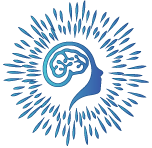The Surprising Connection Between Mental Health & Heart Health

By: Amanda Nichols
Categories:
The Surprising Connection Between Mental Health & Heart Health
It’s no secret that our mental and physical health are closely intertwined. But did you know that your heart health can be affected by your mental health? For years, doctors thought the connection between the two was strictly behavioral – such as when a person feeling down seeks relief from smoking, drinking, or eating fatty foods. Now, research has uncovered the possibility of physiological connections too. This means that the biological and chemical factors that trigger mental health issues might also influence heart disease. In honor of Heart Month, let’s take a look at what this means for families and how they can protect their hearts by managing their mental health.
The Link Between Mental Health & Heart Disease
Depression, anxiety, PTSD, and bipolar disorder can all have serious consequences for one’s physical health, including an increased risk of developing cardiovascular diseases like high blood pressure and coronary artery disease. A large and growing body of research indicates that mental health is associated with risk factors for heart disease both before and during the diagnosis of a mental health disorder. These effects can occur directly, via biological pathways, or indirectly, via risky health behaviors.
Long-term depression, anxiety, stress, and even PTSD may have physiologic effects on the body, such as increased cardiac reactivity (e.g., increased heart rate and blood pressure), decreased blood flow to the heart, and elevated cortisol levels. These physiologic effects can result in calcium buildup in the arteries, metabolic disease, and heart disease over time.
Evidence suggests that mental health disorders such as depression, anxiety, and post-traumatic stress disorder (PTSD) can develop following cardiac events such as heart failure, stroke, and heart attack. These disorders can develop following an acute heart disease event due to factors such as pain, fear of death or disability, and financial difficulties associated with the event.
Some literature mentions the effect of medications used to treat mental health disorders on the risk of cardiometabolic disease. Obesity, insulin resistance, diabetes, heart attacks, atrial fibrillation, stroke, and death have all been linked to the use of certain antipsychotic medications.
It’s important to note that these biological connections do not mean one condition causes another; rather, there is a correlation between them. This is why it’s so important to manage both our mental and physical health equally – particularly if we’re at risk for either or both conditions.
Managing Mental Health to Protect Your Heart
So how can families protect their hearts by managing their mental health? Of course, if someone is already dealing with a mental illness like depression or anxiety, seeking professional help is essential for the proper management of those conditions. But there are steps we can all take in our everyday lives to boost our moods naturally while protecting our hearts:
• Make time for meaningful activities like reading or playing sports that you enjoy;
• Be aware of your diet; try adding healthy fats like avocados, nuts, and salmon into your meals;
• Get enough sleep; aim for 7-8 hours each night
• Exercise regularly but don’t overdo it! A 20-minute walk counts.
• Connect with friends and family in person or virtually whenever possible
• Manage stress with breathing exercises or meditation apps;
• Take time out each day just to relax! Schedule it into your day like an appointment if necessary!
Our emotional well-being has consequences beyond making us feel bad – it could also impact our physical well-being in ways we didn’t expect before. Fortunately, taking proactive steps toward managing both our emotional and physical well-being will help us stay healthy inside and out! If you’re worried about any symptoms related to your mental or physical health, don’t hesitate to speak to your doctor or counselor right away.
